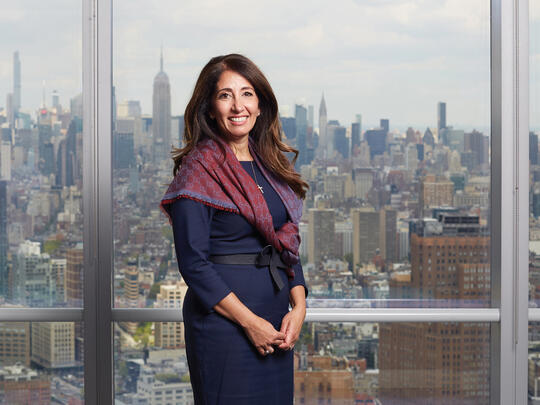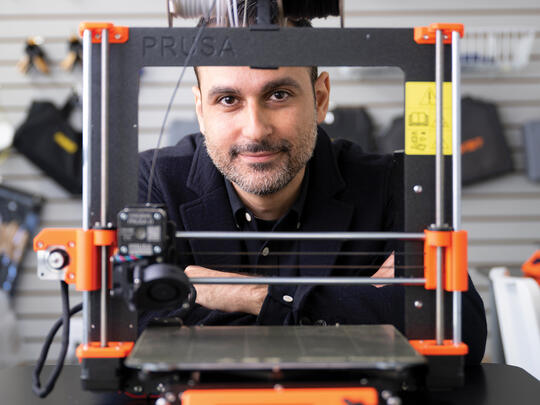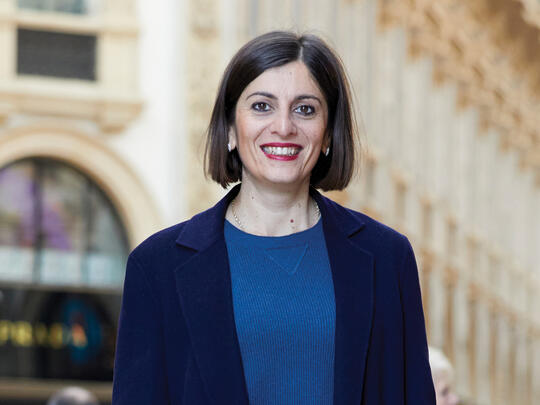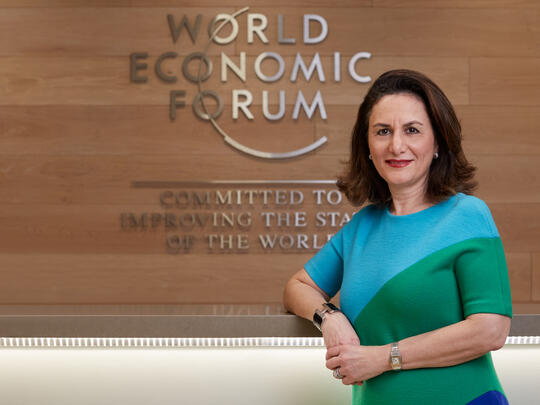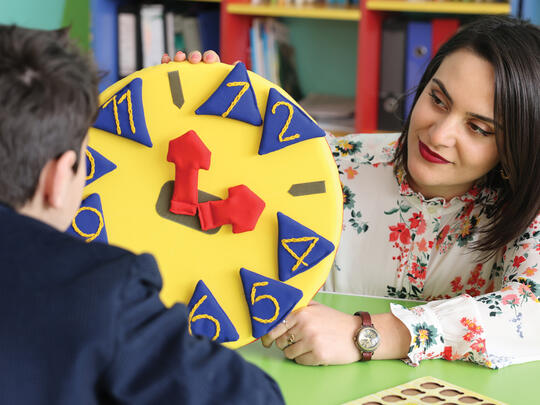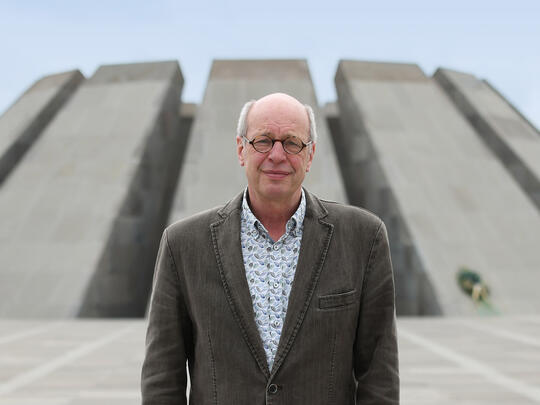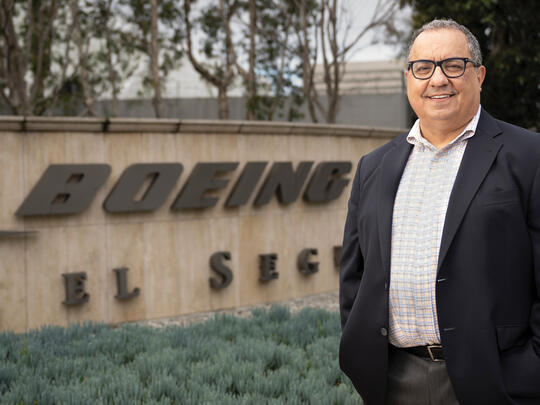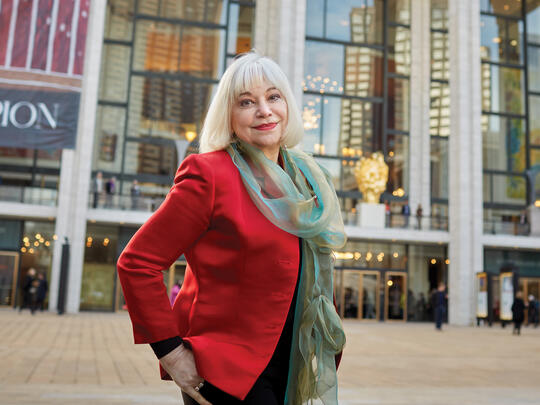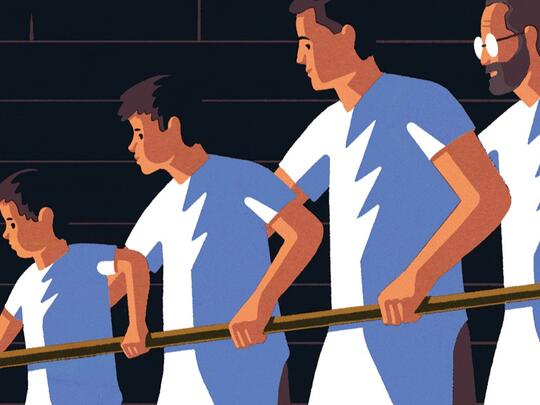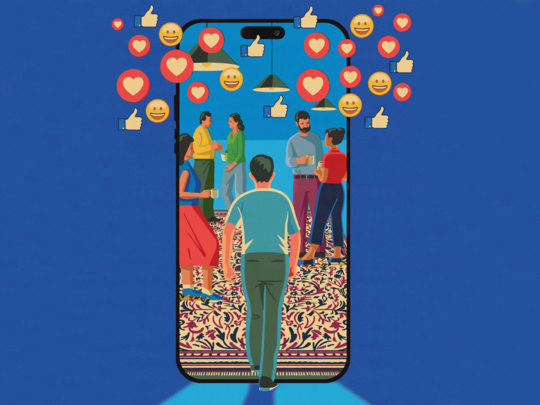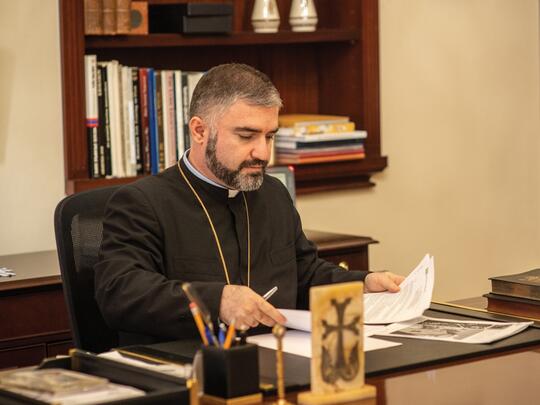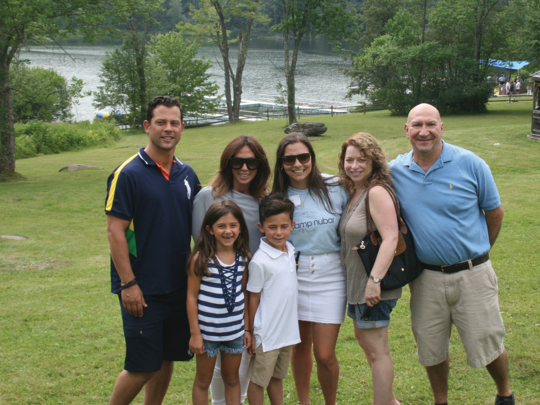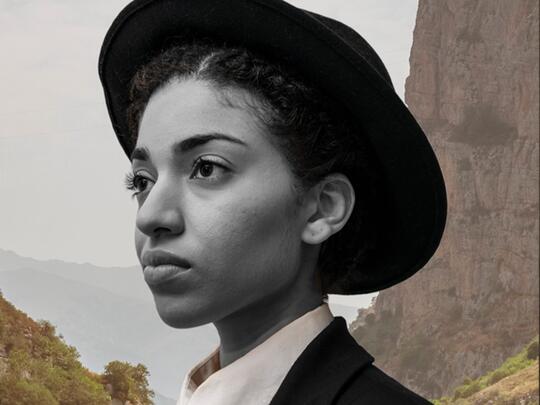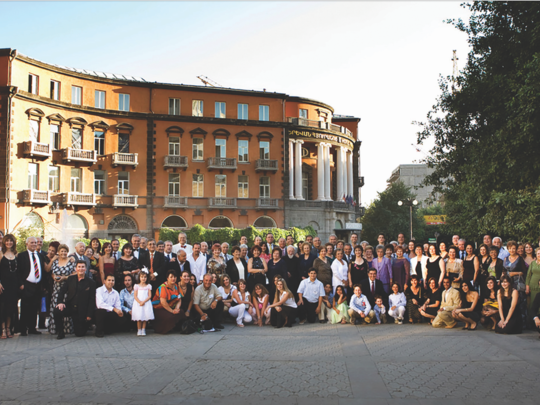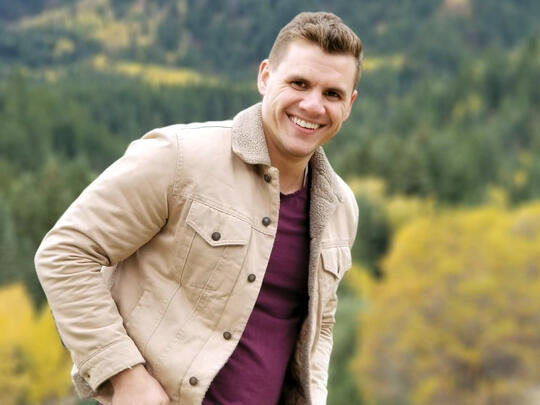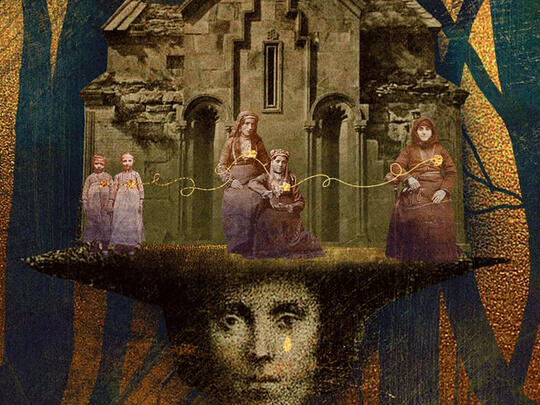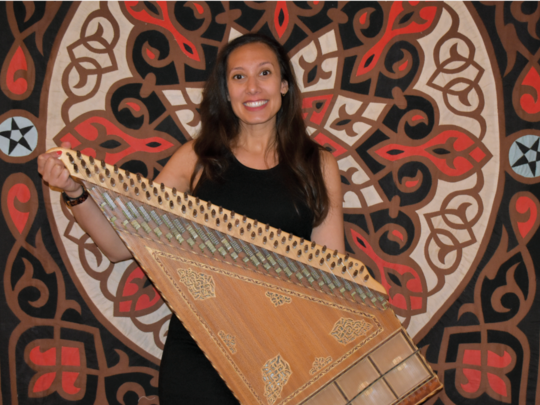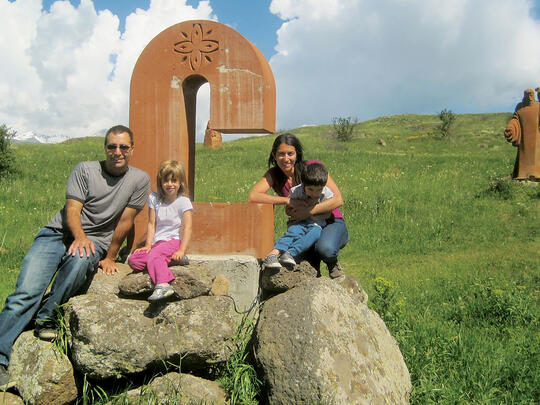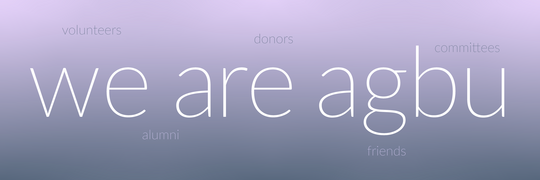
Human Rights Crusader
Anna Kalashyan
I’m not simplifying it when I say that if it wasn’t for the AGBU Scholarship Program that invested so much in me and my doctoral work, it wouldn’t have been possible for me to be working at the World Bank today.
Anna Kalashyan wants to reimagine a governance model for post-Soviet states where citizens have a voice. Growing up in Russia, she came to develop an interest in human rights thanks to her placement during the AGBU Yerevan Summer Internship Program and has been in the field ever since.
Now, she is finishing up her doctorate—for which she received an AGBU US Graduate Scholarship—works at the World Bank in Washington D.C. where she is on a team that promotes women’s economic empowerment by accelerating the spread of best practices for employee-sponsored childcare to make sure women can participate equally in the workforce.
In our conversation, Anna reflects on growing up Armenian in Russia, discusses her transformative summers with the Yerevan Summer Internship Program (YSIP) and New York Summer Internship Program (NYSIP) and explains her interest in promoting democracy and human rights.
What were some of the challenges growing up Armenian in Russia?
Russia has been a really welcoming home for Armenians. It’s a big community of two million people and one of the biggest Armenian diasporas in the world. Because culturally there aren’t that many differences between Russia and Armenia—as former Soviet republics—one of the critical aspects of growing up in an environment like that was understanding my distinct heritage. My first exposure to Armenian culture came through my dad who thought that finding yourself in this world means knowing and understanding the past. In Russia, you have to really search for your identity, because it’s so easy to become part of the multi-ethnic fabric of such a big country.
How did living in a post-Soviet society shape your interest in democracy and human rights?
Everything I do and everything I’m passionate about was drawn from where I grew up. I grew up in a society where the space for civic activism is small, since the right to assembly, the right to association and the right to expression is limited by various legal provisions. This made me more aware of the direct consequence of illiberal forms of governance both on the social fabric and on the aspirations of ordinary people. Regarding the governance structure, I believe currently that there is no meaningful and systemic dialogue between civil society organizations and the authorities. The civil society does not have an opportunity to engage in an open discussion with political elites to build a consensus about national and regional policies. That takes a sense of public trust away from citizens. The last couple of years have seen a lot of legislative effort to limit space for civil society, which manifested in ways that no one predicted. A lot of organizations including UNICEF were forced to leave the country, because they were presenting a kind of alternative analysis. Seeing this made me passionate about learning more about equality, social justice theories, human rights and mechanisms that international organizations like the United Nations have developed to defend and promote fundamental rights. I would like to re-imagine a governance model for post-Soviet states where citizens have a voice and where civil society can translate the voice of the people into action and policy solutions.
How were you exposed to human rights issues in Armenia and what do you think should be done to address them?
My first exposure to human rights issues in Armenia came through my Yerevan Summer Internship Program (YSIP) placement at the Human Rights Defender of the Republic of Armenia. I used to think that Armenia was a country that didn’t face as many human rights issues as Russia, but I realized I was wrong that summer. That changed my understanding of political dynamics in that country and I came to the point of understanding that I wanted to work on different issues and be based in Armenia, which I did later on after I had graduated from the London School of Economics and Political Science (LSE) in 2010. I was based in the country for two and a half years and those years were absolutely critical to engage with both civil society groups and the government.
The years I spent in Armenia helped me learn a few of the pressing areas in human rights. I believe that some of the country’s most critical challenges could be addressed by building the infrastructure for a dialogue between the civil society and government agencies that will ultimately maximize the impact of civil society organizations in the policy-making process and ensure that citizens have the space and are equipped with methodology and tools to solve critical social, economic and political issues in collaboration with the government and without the threat of repression. At the most foundational level, this shift towards a consultative and transparent policy-making model will guarantee that people’s political, social and economic priorities are reflected in government policies.
How did NYSIP help shape your professional goals?
NYSIP offered me the whole package—the opportunity to work in my favorite city, in my favorite field and to get to know amazing professionals and a very diverse Armenian community. For me, it was my first exposure to the Armenian community in New York. I want to emphasize that sense of community that NYSIP builds. In Russia, we’re in the process of developing that sense of community among Armenians and NYSIP can serve as a great model to strive toward. In general, I think NYSIP represents a model that AGBU promotes in communities around the world. It’s this idea of interrelatedness and collective responsibility toward the well-being of the community.
Can you tell me about your doctoral dissertation?
While in Armenia, I realized that one of the critical reasons why women are held back is the overwhelming responsibility for carework in households and communities. On a theoretical level, my dissertation aims to provide a rigorous analysis of the impact of unequal distribution of domestic labor on women, their families and the society overall. On a policy level, my doctoral work builds a gender evidence base by evaluating different policy models for recognizing and redistributing the gender division of domestic labor and improves our understanding of the mechanisms through which the underlying causes of gender inequality can be addressed.
What kind of projects do you work on at the World Bank?
At the World Bank, I work on a project called Tackling Childcare. The goal is to present better career opportunities for working parents and accelerate the spread of best practices for employee-sponsored childcare. Unpaid carework includes childcare. I am very lucky to have an opportunity to work on the childcare component because I think it’s something that a lot of governments and the private sectors are open to considering. The goal of our team is to provide knowledge, best practices and data to help the private sector realize their commitment to implementing childcare solutions that are good for business and communities. To be more specific, I’m on the Women, Business and the Law team and my team is analyzing the regulatory framework and laws applicable to employer-supported childcare around the world. Essentially the outcome of this will be policy recommendations to governments to support the private sector provision childcare.
For our purposes, since we work on women’s economic empowerment, we want to make sure that there is gender diversity in the workplace. We want to make sure that governments and the private sector equally invest in women, which means improving job opportunities and quality of jobs. Doing this work, I realized how it can be a game-changer, because investing in women can essentially help tackle poverty and boost prosperity. When women can participate equally in the workforce, it’s not just women who win, but the companies and the economies that win, too.
What do you hope to do in the future?
As you can see from my career trajectory, I am passionate about human rights. I started off with human right promotion and advocacy work. My YSIP internship exposed me to the women’s rights issues in Armenia, and made me passionate about gender equality work. Now with my work on the Tackling Childcare project, I see the importance of investing in the country’s most valuable asset: its people.
While doing research on human capital formulation, I realized that early childhood development is not just critical for women’s participation in the labor market, but is also a tool that can unlock all investments in all sustainable development goals. I came to the realization that the early years make the true difference for the development of the economy in the long run. I intend to deepen my knowledge in the field of early childhood care and education. I would call it my passion at this point in my career.
Is there anything else you would like to add?
I want to emphasize my gratitude to AGBU. I’m not simplifying it when I say that if it wasn’t for the scholarship program that invested so much in me and my doctoral work, it wouldn’t have been possible for me to be where I am today. I feel a kind of responsibility to give back at some point in my career by providing guidance to people who are passionate about the work I do and by being a mentor. That’s something I want to help the AGBU Scholarship Program develop because I know that there are so many talented scholarship recipients who would love to give back.
Please note that archived content may appear distorted as it has been stripped of formatting and original images.


